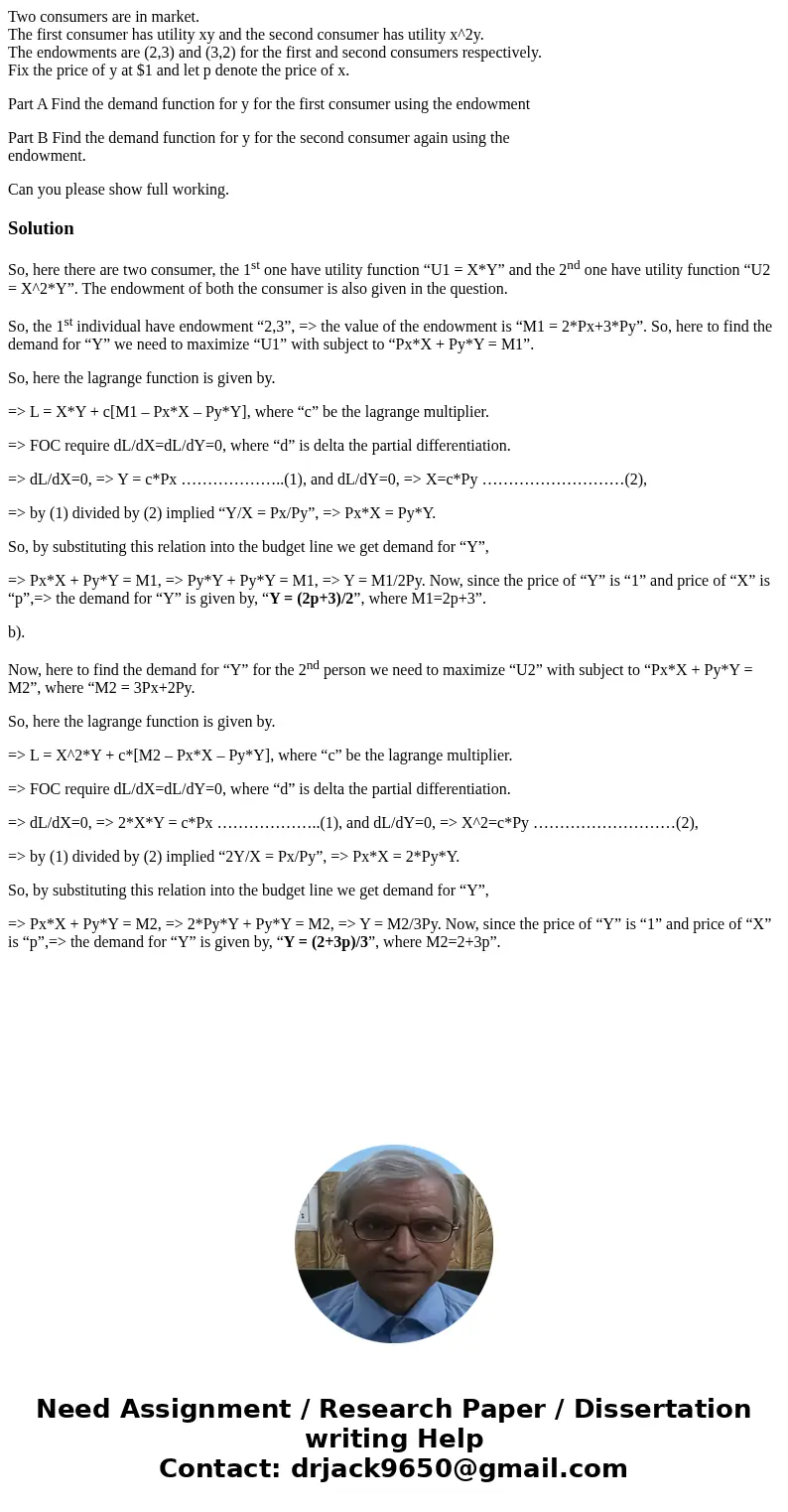Two consumers are in market The first consumer has utility x
Two consumers are in market.
The first consumer has utility xy and the second consumer has utility x^2y.
The endowments are (2,3) and (3,2) for the first and second consumers respectively.
Fix the price of y at $1 and let p denote the price of x.
Part A Find the demand function for y for the first consumer using the endowment
Part B Find the demand function for y for the second consumer again using the
endowment.
Can you please show full working.
Solution
So, here there are two consumer, the 1st one have utility function “U1 = X*Y” and the 2nd one have utility function “U2 = X^2*Y”. The endowment of both the consumer is also given in the question.
So, the 1st individual have endowment “2,3”, => the value of the endowment is “M1 = 2*Px+3*Py”. So, here to find the demand for “Y” we need to maximize “U1” with subject to “Px*X + Py*Y = M1”.
So, here the lagrange function is given by.
=> L = X*Y + c[M1 – Px*X – Py*Y], where “c” be the lagrange multiplier.
=> FOC require dL/dX=dL/dY=0, where “d” is delta the partial differentiation.
=> dL/dX=0, => Y = c*Px ………………..(1), and dL/dY=0, => X=c*Py ………………………(2),
=> by (1) divided by (2) implied “Y/X = Px/Py”, => Px*X = Py*Y.
So, by substituting this relation into the budget line we get demand for “Y”,
=> Px*X + Py*Y = M1, => Py*Y + Py*Y = M1, => Y = M1/2Py. Now, since the price of “Y” is “1” and price of “X” is “p”,=> the demand for “Y” is given by, “Y = (2p+3)/2”, where M1=2p+3”.
b).
Now, here to find the demand for “Y” for the 2nd person we need to maximize “U2” with subject to “Px*X + Py*Y = M2”, where “M2 = 3Px+2Py.
So, here the lagrange function is given by.
=> L = X^2*Y + c*[M2 – Px*X – Py*Y], where “c” be the lagrange multiplier.
=> FOC require dL/dX=dL/dY=0, where “d” is delta the partial differentiation.
=> dL/dX=0, => 2*X*Y = c*Px ………………..(1), and dL/dY=0, => X^2=c*Py ………………………(2),
=> by (1) divided by (2) implied “2Y/X = Px/Py”, => Px*X = 2*Py*Y.
So, by substituting this relation into the budget line we get demand for “Y”,
=> Px*X + Py*Y = M2, => 2*Py*Y + Py*Y = M2, => Y = M2/3Py. Now, since the price of “Y” is “1” and price of “X” is “p”,=> the demand for “Y” is given by, “Y = (2+3p)/3”, where M2=2+3p”.

 Homework Sourse
Homework Sourse